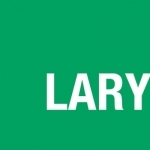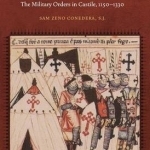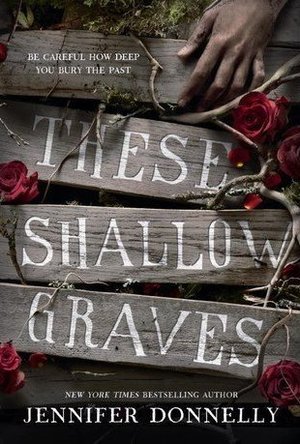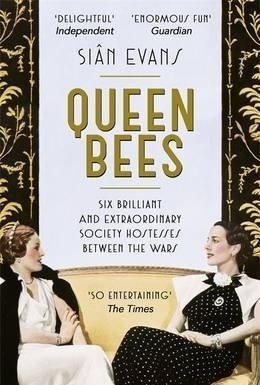Hazel (1853 KP) rated These Shallow Graves in Books
Dec 17, 2018
Known for her young adult series about mermaids, Jennifer Donnelly also proves she is an excellent writer of historical murder mysteries. <i>These Shallow Graves</i> is set in the USA during the late 1800s where Josephine Montfort, a headstrong seventeen-year-old from a respectable family, is expected to marry well and produce a male heir. However, Jo’s innocent lifestyle is disrupted after her father’s mysterious death. With her passion for writing at the forefront of her mind, Jo rejects social etiquette and begins searching for answers.
Jo meets Eddie, a young, ambitious newspaper reporter who agrees to assist with her enquiries. However it is not as straightforward as Jo expects it to be. As the pair begin to uncover dangerous secrets, Jo is also witness to the injustices in the world. Life for the rich was a whole different world from that of the poor, but as Jo learns, that does not make anyone less worthy of being treated as a person.
<i>These Shallow Graves</i> is an exciting story that is gripping from beginning to end. Not only is there a crime to solve, Jo also ends up in a forbidden relationship that crosses the boundaries of her social status. From an historical point of view it is refreshing to read of a female challenging her position in society rather than being the naïve protagonist that many novels written during this time period contain. In some ways she is comparable to Jo March in <i>Little Women</i>, and not only because of their shared name.
Having read the first two books in the <i>Waterfire</i> saga, and been slightly disappointed with the writing style, I was a little apprehensive when beginning to read <i>These Shallow Graves</i>. I presumed I would get bored part way through, or find the narrative dreary, however I was pleasantly surprised. Donnelly is significantly better at historical fiction. The book was greatly researched thus the setting and dialogue were perfectly in keeping with the time period.
As with most murder mysteries the murderer is only revealed at the very end of the story. I guessed who it was fairly early on, however that is all it was, a guess. Most readers will be left hanging until the final chapters – will you work out who it was before then?

The Laryngoscope
Education and Magazines & Newspapers
App
The Laryngoscope is now available on iPad, iPhone, and iPod touch. “The Laryngoscope” is the...

Classic Pens: The 50 Greatest Games in Pittsburgh Penguins History
Book
In the first edition of Classic Pens readers were reminded of the franchise's most memorable...

The Trading Playbook: Two Rule-Based Plans for Day Trading and Swing Trading
Book
Traders have a tendency to over-complicate. Many search for the latest new indicator that will give...

Ecclesiastical Knights: The Military Orders in Castile, 1150-1330
Book
"Warrior monks"-the misnomer for the Iberian military orders that emerged on the frontiers of Europe...
Ross (3284 KP) rated Rogue: Untouched in Books
May 11, 2021
In that film, Rogue is played by the wonderful Anna Paquin, who also starred as Sookie Stackhouse in True Blood. It both helped and confused me that in this book Rogue is waiting tables in a smalltown diner, blurring the lines between Rogue and Sookie for me. I kept expecting a vampire to walk through the diner doors. Instead, we are treated to the superb cajun Gambit, my favourite character from the early 90s cartoon series. He helps Rogue (Anna Marie) to discover that she has some mutant powers and how they could be used.
At the same time, Rogue meets two mysterious ladies who are seeking new students for their academy and encourage her to take a chance and give up her waiting career.
Rogue then finds herself embroiled in Gambit's past exploits with a mutant slave trader and has to quickly learn to use her powers (and those of the mutants around her) to escape their capture.
The book flows well, with plenty of character development for Rogue and a satisfying cast of familiar and new (to me at least!) mutants along the way - including one late reveal that I'm sure all readers will see coming a mile off.
While the book never dragged and the pace was great, I did struggle to get through this book as quickly as I had hoped. This is more down to things going on outwith my reading schedule (stupidly listening to 500 albums, marking professional exams and the kids' school holidays). However, while I can't quite put my finger on anything specific, the book didn't quite drag me back in for a sneaky 10 minutes during the day.
I did enjoy this book, as with some of the other Marvel novels issued recently, and would recommend it to anyone looking for something a bit super-hero-y but in a novel.
I received a free advance copy of this book from the publishers and netgalley in exchange for an honest review.

Horror Stories: A Memoir by Liz Phair
Book
From the two-time Grammy-nominated singer-songwriter behind the groundbreaking album Exile in...

The Very Hungry Caterpillar– First Words
Games and Education
App
The Very Hungry Caterpillar™ & Friends First Words is an adorable preschool learning app for...
A spectacle of celebrity, talent and burning ambition, Queen Bees combines the biographical stories of six ambitious women who helped to shape the standards of British society between the two world wars. Londoner Siân Evans is a cultural historian who has previously worked with the Victoria and Albert Museum, National Trust and Design Museum, and takes great lengths to thoroughly research into her written subject in order to portray a highly accurate insight to the lives of historical figures. Due to the non-existent political status of women in the early 1900s, the women featured in this book are virtually unknown today, yet they had a great impact during the 20s and 30s and helped to shape the Britain of today.
Although not necessarily born into it, circumstances such as marriage meant these six women were regarded as upper class. In no particular order, the names impacting on the social revolution and thus featured in Queen Bees are as follows: Lady Nancy Astor, the first female MP; Lady Sybil Colefax, who became a friend of Edward VIII; Lady Emerald Cunard, also connected with the royal family; Mrs. Ronnie Greville, a rather formidable woman; Lady Edith Londonderry, the founder of the Women’s Legion; and Laura Corrigan, the youngest of the set. Evans talks the reader through these women’s careers as professional hostesses as they compete to throw the better party, entertaining famous writers and actors as well as members of royalty, both national and foreign.
What is perhaps the most interesting, and indeed the most worth learning, is the way a couple of these women altered the future of the British monarchy. Without their interference the future George VI would never have married Elizabeth Bowes-Lyon, and without their involvement in the relationship between Edward VIII and Wallis Simpson, George VI would never have come to the throne. This is such an important aspect of British history that has been widely left out and ignored. Without these hostesses influence we would all be experiencing a slightly different life.
In terms of the actual writing, Siân Evans manages fairly well to engage the reader as she relates the factual story in a more or less chronological way. A slight issue is the quick, often undetected, move from one woman to the next, resulting in a lot of confusion about who is who particularly at the beginning of the book. A lot of the narrative features other key figures from the same period and often moves away from the main characters, which, whilst interesting, is not what the reader necessarily expected from a book whose title Queen Bees suggested it was only going to be about the women’s lives.
Footnotes, quotes and extracts from letters and diaries help to make the book appear reliable, factual and believable. Some of the content, without back up, would have seemed rather fanciful or exaggerated. Queen Bees can be read as a source of entertainment or as a citation for historical research. What is found within these pages is a more unbiased account of the early twentieth century than would be found in numerous male dominated history textbooks.
Mature readers of all ages are likely to gain something from reading Queen Bees – pleasure, knowledge etc., however it is most likely to appeal to the contemporary feminist. With this in mind, be aware that the six hostesses were not feminists of their time; they were not involved in Suffragette movements and were fairly content to live off money earned by their husbands or fathers. Yet, on the other hand, they impacted on the future of Britain as much as the male politicians of the time. Highly political in content, Queen Bees is worth reading to discover our own history, but be prepared for initial confusion over who is who and rather lengthy paragraphs.
A spectacle of celebrity, talent and burning ambition, <i>Queen Bees</i> combines the biographical stories of six ambitious women who helped to shape the standards of British society between the two world wars. Londoner Siân Evans is a cultural historian who has previously worked with the <i>Victoria and Albert Museum, National Trust </i>and <i>Design Museum</i>, and takes great lengths to thoroughly research into her written subject in order to portray a highly accurate insight to the lives of historical figures. Due to the non-existent political status of women in the early 1900s, the women featured in this book are virtually unknown today, yet they had a great impact during the 20s and 30s and helped to shape the Britain of today.
Although not necessarily born into it, circumstances such as marriage meant these six women were regarded as upper class. In no particular order, the names impacting on the social revolution and thus featured in <i>Queen Bees</i> are as follows: Lady Nancy Astor, the first female MP; Lady Sybil Colefax, who became a friend of Edward VIII; Lady Emerald Cunard, also connected with the royal family; Mrs. Ronnie Greville, a rather formidable woman; Lady Edith Londonderry, the founder of the Women’s Legion; and Laura Corrigan, the youngest of the set. Evans talks the reader through these women’s careers as professional hostesses as they compete to throw the better party, entertaining famous writers and actors as well as members of royalty, both national and foreign.
What is perhaps the most interesting, and indeed the most worth learning, is the way a couple of these women altered the future of the British monarchy. Without their interference the future George VI would never have married Elizabeth Bowes-Lyon, and without their involvement in the relationship between Edward VIII and Wallis Simpson, George VI would never have come to the throne. This is such an important aspect of British history that has been widely left out and ignored. Without these hostesses influence we would all be experiencing a slightly different life.
In terms of the actual writing, Siân Evans manages fairly well to engage the reader as she relates the factual story in a more or less chronological way. A slight issue is the quick, often undetected, move from one woman to the next, resulting in a lot of confusion about who is who particularly at the beginning of the book. A lot of the narrative features other key figures from the same period and often moves away from the main characters, which, whilst interesting, is not what the reader necessarily expected from a book whose title <i>Queen Bees</i> suggested it was only going to be about the women’s lives.
Footnotes, quotes and extracts from letters and diaries help to make the book appear reliable, factual and believable. Some of the content, without back up, would have seemed rather fanciful or exaggerated. <i>Queen Bees</i> can be read as a source of entertainment or as a citation for historical research. What is found within these pages is a more unbiased account of the early twentieth century than would be found in numerous male dominated history textbooks.
Mature readers of all ages are likely to gain something from reading <i>Queen Bees</i> – pleasure, knowledge etc., however it is most likely to appeal to the contemporary feminist. With this in mind, be aware that the six hostesses were not feminists of their time; they were not involved in Suffragette movements and were fairly content to live off money earned by their husbands or fathers. Yet, on the other hand, they impacted on the future of Britain as much as the male politicians of the time. Highly political in content, <i>Queen Bees </i>is worth reading to discover our own history, but be prepared for initial confusion over who is who and rather lengthy paragraphs.


